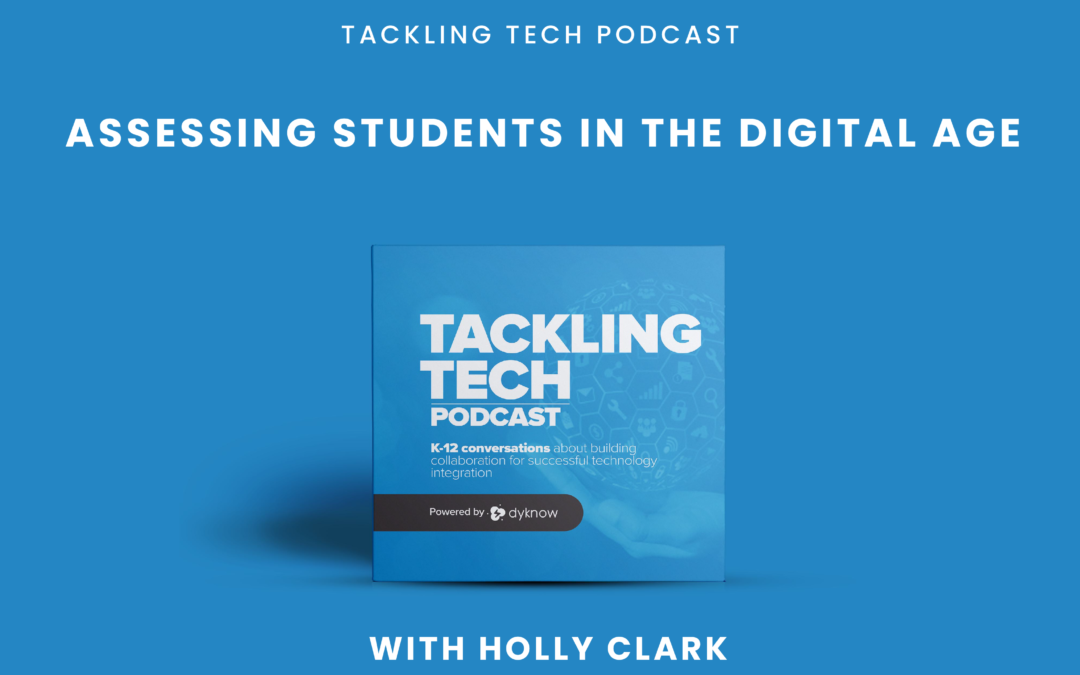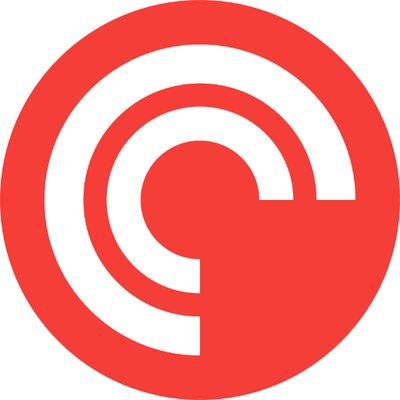On this episode of Tackling Tech Podcast, powered by Dyknow, Brett McGrath speaks with Holly Clark. Holly is an education thought leader, international speaker, best-selling author, and student advocate with 20+ years as an educator and administrator. Her published three books are The Google Infused Classroom, The Microsoft Infused Classroom and The Chromebook Infused Classroom. She shares her advice on assessing students in a digital age.
Listen to Episode 29:
Available wherever you listen to podcasts:
Don’t have time to listen to the episode? Here’s a peek at what’s inside…
Working in K-12 Education in the Age of COVID-19
Holly Clark is used to traveling all over the world and helping teachers integrate technology effectively. Now, she is spending her time volunteering inside of an 8th grade Language Arts classroom where she is helping enhance remote learning. When we spoke with Holly, she shared the sentiment that “this feels like [her] Olympics.”
As one of the first teachers to integrate technology into her classroom over 20 years ago, Holly has extensive experience with 1:1 devices. She understands how to effectively integrate 1:1 devices and has seen the evolution of these device programs from voluntary inception to emergency implementation due to remote learning.
1:1 Devices Now vs. 20 Years Ago
Holly’s experience with 1:1 devices is unique, in that she began her career in Silicon Valley, where many parents in her class worked in various technology conglomerates. Because of this, she was gifted 1:1 devices for her classroom nearly twenty years ago when these programs were just being tested in schools. Her situation was also unique because the parents in her class were supportive and helped innovate with those 1:1 devices.
Looking at 1:1 device programs now, she is shocked that it took a pandemic to finally get the majority of our schools using 1:1 devices. Even though that’s what it took to get a device in front of every student, Holly is thrilled that it has finally happened. “Students will be going into the workforce where they will have to work remotely and use devices to do things digitally,” so she is happy to now see this modeled in so many K-12 classrooms.
Responses to Remote Learning
We shared many of the sentiments that we have observed and heard first-hand in regard to remote learning, but wanted to see if Holly was hearing the same things. Holly shared that she is hearing more from students about how they are enjoying remote learning, which is important. She has seen many students staying after classes to continue work and discussion with their teacher. This is encouraging for Holly because it reminds her of the physical classroom and shows that students are finally enjoying and thriving in remote learning environments.
From a teacher’s perspective, Holly advises that if you do things right and think about how you are blending instruction, you can have the same or better outcomes. Recently a teacher shared with Holly that she really enjoys remote learning and supports adopting a hybrid model year-round. This was encouraging to hear because this was the same teacher who was previously scared to use technology.
Rethinking Assessment in the Digital World
Holly Clark is passionate about helping teachers rethink assessment in the age of technology. She shared with us that one of the main problems with assessment is that teachers are still using old, traditional methods of assessment – like multiple-choice questions – that make it hard to effectively assess students and don’t take advantage of all the great technology tools we have access to.
Now that we are in a digital age, students can Google any question and instantly find the answer, so we need to rethink how we ask questions and how we assess. She has been saying for a long time, “If you can Google the answer, don’t ask the question.”
Holly is determined to get schools on board with rethinking assessment, specifically in terms of getting students talking and telling us about their learning. “We get richer information on student growth when we can hear them talking and telling us about their learning.” She believes we need to start by layering this into multiple-choice questions until we are comfortable enough to remote multiple-choice altogether, and then we can begin to rely on students telling and showing us what they are learning rather than regurgitating.
EdTech Tools to Rethink Assessment
1. FlipGrid
In Holly’s opinion, this is one of the best and most dynamic tools of this century. If she could have only one tool to use for remote learning, it would be FlipGrid. Holly encourages teachers to use FlipGrid to enable students to talk about their learning and complete assessments that way.
2. Book Creator
This is one of the tools that Holly uses to differentiate learning for students. She uses Book Creator to create digital notebooks for students to complete their work, and she can observe each student’s progress through assessments at the beginning and end of the unit as well as throughout.
3. Seesaw
Holly supplements her use of FlipGrid with Seesaw, enhancing learning and assessment with this tool. She shared that if she walked into a classroom where students were completing innovative assessments, she would hope to see that they were using Seesaw.
4. Screencastify
This is a tool that we hear a lot about in terms of remote learning as well as flipped learning. Screencastify is great both for students to create videos of themselves talking about their learning as well as for teachers to use screencasting while they are creating instructional videos for at-home and in-class flipped learning.
5. Canva
This is a great tool to spark creativity for teachers and students. Holly shared that she is having students complete a manifesto project right now where they are creating manifestos to reflect on the year. They are creating these in Canva, and then using other tools to enhance how they share these stories with their peers.





